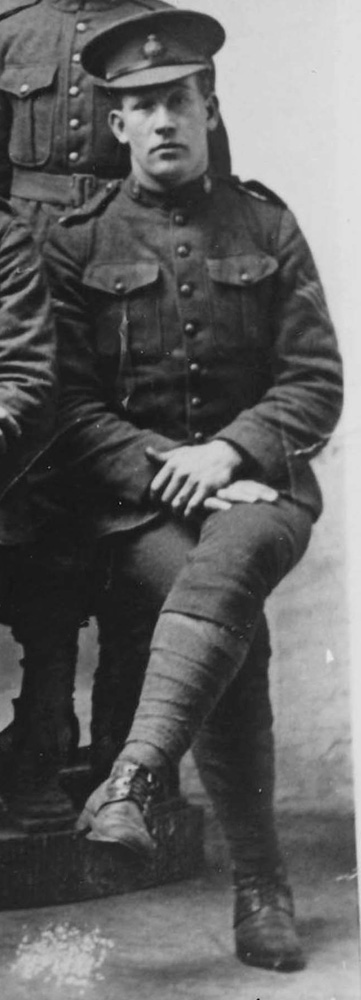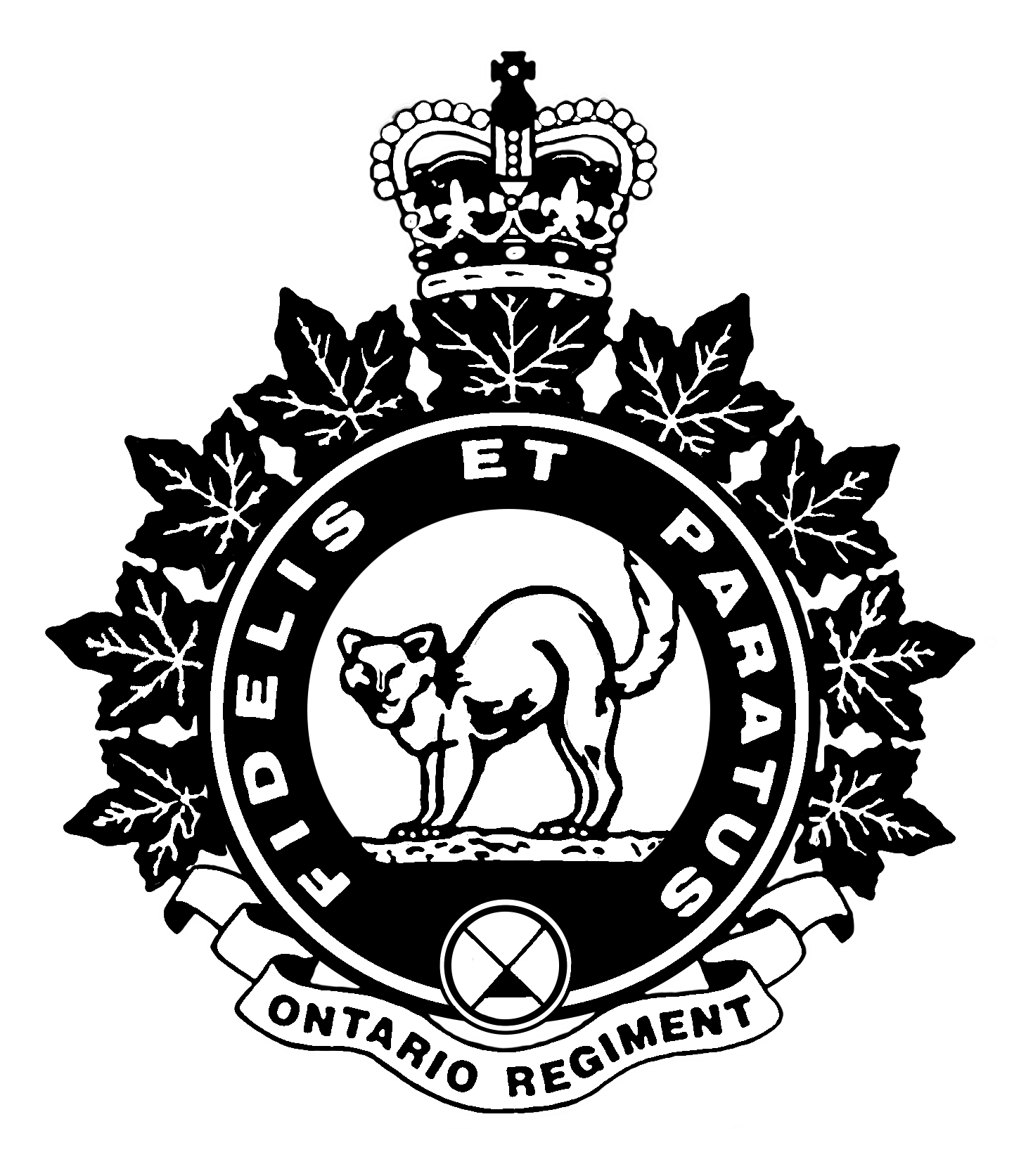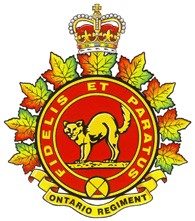Robert Law Clark was the fourth Battalion Sergeant-Major of the 116th Battalion. He followed after the tenure of Warrant Officer Class II James Fenwick, who served as Acting BSM (biography to come in a future article).

Robert Clark was born in Byng Inlet, Ontario, about 65 kilometres north of Parry Sound, in 1891. He married Louise Hudson in 1911 and they had two children before the war – Frank and Louise.
Clark enlisted in the 157th Battalion, Canadian Expeditionary Force on 22 November 1915, having no previous military experience. The 157th was still in its initial stages of formation which may account for the fact that he did not attest until 6 February 1916. At the time, he was living in Orillia and working as an electrician.
The 157th Battalion took part in the initial construction of Camp Borden in 1916. Once the camp was completed, the 157th transitioned to military training. The Battalion sailed for England in October. Like all CEF battalions at the time, the 157th was broken up for reinforcements to other battalions. Clark was part of a draft of men sent to the 116th Battalion in December 1916. Clark was a Lance Sergeant at this time, but reverted to Lance Corporal when he transferred.
Clark was with the 116th Battalion when they arrived in France in February 1917. He quickly recovered his rank, being promoted to Corporal in May and Lance Sergeant in June.
The 116th Battalion conducted a large raid against German positions near Avion on the night of 22-23 July 1917. Clark was later awarded the Military Medal for his actions during the operation. His medal card reads:
For conspicuous bravery and gallant conduct just prior to and during operation of the July 22-23rd. Sgt. CLARK made a reconnaissance of the enemy wire before the operation, the information secured being of great value in leading his Platoon during the attack. He displayed great coolness and initiative in getting the men into their positions in the jumping-off line, and in leading them to their objective. His conduct was an inspiration to the men of his platoon, and notwithstanding severe hostile shelling and the intense gas, he remained in Trench until everyone of his platoon had gone out and every casualty had been evacuated.
On 23 August 1917 Clark received a gunshot wound to the face. There were no major battles at the time, making him one of many soldiers who were wounded in a typical day in the front lines. Clark was evacuated and spent almost two months in hospital. He returned to the 116th Battalion in mid-October 1917.
Clark’s promotions came rapidly after this. He was promoted to Sergeant in October and Warrant Officer Class II in February 1918, becoming a Company Sergeant Major at the same time. On 4 April 1918 he was promoted to Warrant Officer Class I and appointed as Battalion Sergeant Major.
Battalion Sergeant Major Clark took on his role during a quiet time for the CEF. The 116th Battalion moved out of the front lines on 23 April and into Divisional reserve. The next few months were focused on sports and then an intense training program in open warfare. It was expected that the trench stalemate would soon end and it would become a war of movement. This training was put to the test on 8 August with the beginning of the Battle of Amiens and the 100 Days Offensive.
Clark left the 116th Battalion on 31 August 1918 and traveled to England for officer training. He was commissioned as a Lieutenant on 5 November 1918 and transferred to the 8th Reserve Battalion. If the war had continued he would have been assigned to a new battalion in France. The war ended less than a week later and he was on his way back to Canada in December.
Clark was discharged from the CEF in January 1919 and returned to Orillia. The 1921 Census of Canada indicates he was living in Parry Sound, ON. After that, little has been documented of his civilian life. His wife passed away in 1936 and he eventually married Bessie McGonegal. Robert Law Clark passed away on 2 March 1966 in Etobicoke, ON. His obituary did not mention his military service.


